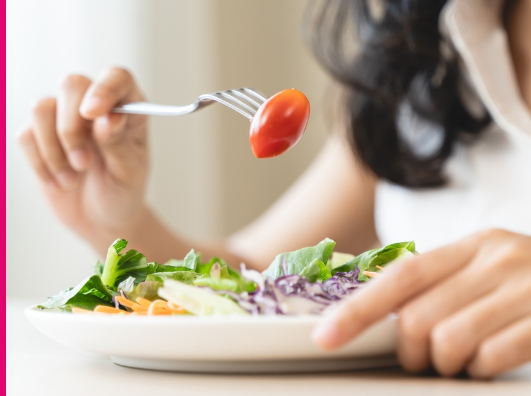What is Mindful Eating?
Mindful eating is applying the tenets of mindfulness or ability to be in the present moment to eating. It is an invitation to always be aware of what’s on our plate, whenever and wherever we eat. It makes us more watchful about what we are eating and helps in transforming our relationship with food by encouraging us to focus on both the how & why of eating.
Bringing mindfulness to the table means a kinder, gentler approach to eating. The focus isn’t necessarily on changing the food we eat (though it can be); it’s on changing our perspective around food. The result is we have a better understanding of what and how much food nourishes us and what doesn’t. We also develop a deeper gratitude for each meal, each mouthful, and each ingredient.






